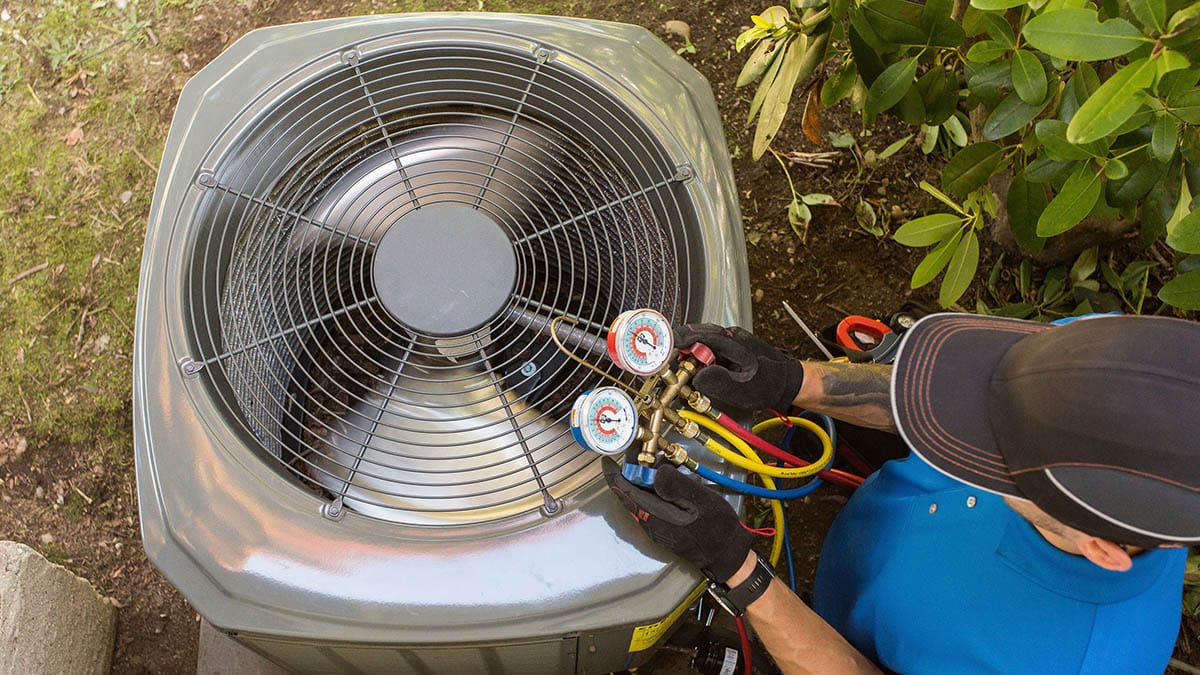What is That Noise? Here’s Why Your AC Compressor is Making Noise

While the frequency for repairing or servicing your AC unit will depend on how big it is, how old it is, and how much you make it work, regular maintenance is good.
When you hear an AC compressor noise, you should have someone who you can call to come and take a look. Some AC unit noises are perfectly common while others can signal serious or even dangerous issues.
Here are six noises to look out for in your Arizona AC unit.
1. Screaming from Your AC Unit
If you hear a screaming from your AC unit, it might make you jump out of your seat the first time you hear it. Often, this screaming sound occurs when a unit is first turned on.
While it’s common for the screaming to occur for a few seconds from when the unit is turned on, it could last for much longer. If it goes on longer than 10-15 seconds before it stops, then you’re dealing with pressure in your system. When that pressure is released from your compressor, it’s going to make your compressor scream.
When things get bad, you might find that your unit turns on and off pretty frequently. When it’s going on and off wildly, making frequent noise, you shouldn’t keep running your AC unit.
Pressure building up in your compressor can be very dangerous. You need to call someone to come and repair it as soon as possible. Shutting off your AC should be your first and most immediate step.
Most AC units have a safety switch that will shut down the unit if the pressure becomes a problem, but it can very easily fail and allow your unit to keep running.
2. Whining Sounds
While you might not classify your sound as a scream, it could be more of a whine. Listen to your AC unit regularly to ensure that you’re not letting a small issue grow out of hand.
Whining is another problem connected to pressure within the compressor. A quiet whine could be just as bad as a loud scream. This is a compressor noise that you have to take seriously as soon as you hear it.
Take care of it when you hear it to ensure that you don’t end up with a much more serious problem.
Internal pressure can be very dangerous, so handle this problem quickly and carefully as soon as you suspect there’s a problem.
3. Banging or Clanking
While most banging or clanking noises are often connected to a fan blade hitting against something, these issues can occur in your compressor as well.
If you’re hearing a banging or clanking sound from your compressor, it’s time to get service as soon as possible. If there’s a loose component knocking around or if a part of the compressor is loose, you need to ensure that you fix it immediately.
There could be several potential parts that are to blame, but rather than exacerbate the issue, get it taken care of immediately. If the motor’s mount becomes loose, you could either take a few seconds to tighten it or risk having to replace the entire unit.
4. Hissing Sounds
Hissing can be linked to a few different issues in your compressor. While it might be hard to pick up on a louder compressor, it’s important to stop everything when you hear this sound.
Compressors are filled with powerful yet toxic refrigerants that help to cool air down quickly. They are constantly forced to switch between liquid and gas states in a rapid manner, which makes air conditioning even possible.
Hissing that comes from your compressor could be this refrigerant leaking out. While it’s an important element to have in your compressor, releasing it into the air can lead to serious health issues. Even though some refrigerants are less dangerous than others, those other refrigerants can be flammable.
The performance of your compressor relies on refrigerant being contained and working smoothly within the unit. Once it leaks out, it’s not only wasteful but dangerous.
5. Do You Hear a Buzz?
If you hear a buzzing sound from your compressor, it’s not a bee stuck in the fan belt. It’s often something more potentially dangerous.
Whenever you’re dealing with heavy duty electrical equipment, you need to beware of buzzing sounds. High voltage electricity, when harnessed properly, has amazing possibilities. However, one wrong move and that power could become volatile and dangerous.
Loose wiring or issues with your electrical controls could cause electricity to run through the unit in the wrong direction. A loose wire could cause the unit itself to become electrified at the touch.
Your best bet is to turn off the power on the unit, unplug it, and wait a few minutes. Then you or a specialist can diagnose the issue safely.
6. What’s That Humming Sound?
If you hear a humming sound, distinct from a buzz, you need to ensure that your start capacitor is in good shape. A failing start capacitor can lead to a variety of different sounds.
One of the sounds you’ll most commonly hear associated with capacitor issues is a humming. Capacitors store electricity to keep circuits going in case electrical flows oscillate. Since you need a smooth flow of electricity, capacitors will ensure that a spike doesn’t blow out your circuit and a dip gets smoothed out.
AC Compressor Noise Should Be Taken Seriously
When you hear serious AC compressor noises, you shouldn’t just assume that they will fix themselves. While this is true of some noises you hear from your air conditioner, it’s rare that noise will be totally innocuous. Having someone check out what your noises mean could lead to a cheap repair that keeps you from having to replace the entire unit.
If you’re looking into a new AC unit, follow our guide to ensure that it’s installed correctly.


